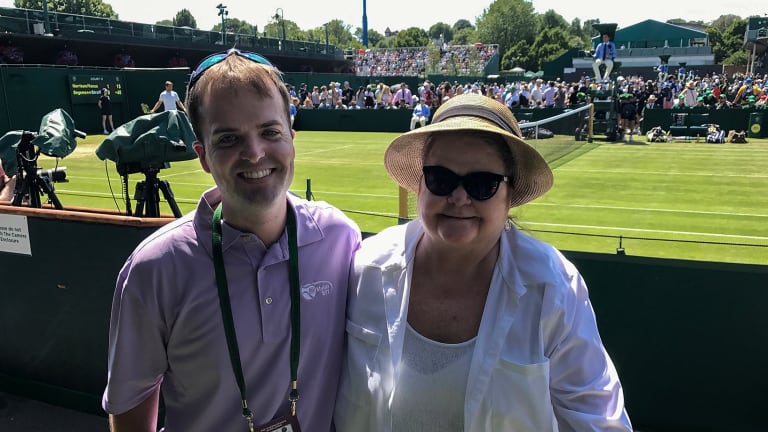Complete commitment. An unwavering desire to succeed. Conviction in one’s abilities. Recognition to adapt with conditions. Respect for the opposition. The will to fight until the final point has been claimed.
Before I pursued a career in a sport boasting these collective qualities, I was first exposed to this set of admirable virtues by my mother, Cyndy Fitzgerald. Her principles progressed into life lessons, and as the years passed by, I found myself turning to her incredible example while trying to navigate my way in the world of professional tennis.
Growing up, I longed to discover acceptance. A shell of shyness was my comfort zone, and I struggled to feel secure in my skin. In the summer of 2002, my direction changed course when I watched my first Wimbledon—the entire fortnight. I felt this transcendent connection, and picked up a racquet after Lleyton Hewitt, who drew me in from his first point at SW19, raised the trophy. I couldn’t explain it, but at 14, I decided my one and only calling had been uncovered.
A generation earlier, mom embarked on her own unique path of self-discovery. A military brat who moved a dozen times, her roots were embedded in education. The status quo was something she often challenged, most notably when earning a Ph.D. in applied measurement and statistics. At the time, women made up roughly 10 percent of conferred doctorate degrees in STEM fields. Mom’s extraordinary drive and pioneering propelled her, among many highlights, to a decade-plus run at Microsoft and the co-founding of a tech company still thriving today.
While I worked to break into an industry I had zero ties to, mom was in my corner for every opportunity I undertook. There was never a question of my ambition, for she understood first-hand the passion, grinding and effort required for a niche as unique as professional tennis. As I began to find my footing, health developed into mom’s most formidable foe, and it was then that her most invaluable lesson was reinforced: you can wait for the ball to arrive, or you can serve and volley.
For me, that crossroads came when I was presented an opportunity with World TeamTennis in New York City. It was a huge relocation, for I only knew the comforts of Suburgatory living. Mom encouraged me not to worry about her situation and I went for it.
Initially, I was tripped up and overwhelmed with my decision to charge forward, but mom constantly demonstrated over the years that a next-point mentality would benefit me greatly. I grew to appreciate and request additional responsibilities alongside a unit that became a second family, and my commitment to the job at hand ultimately produced a day that forever loops in my mind.
